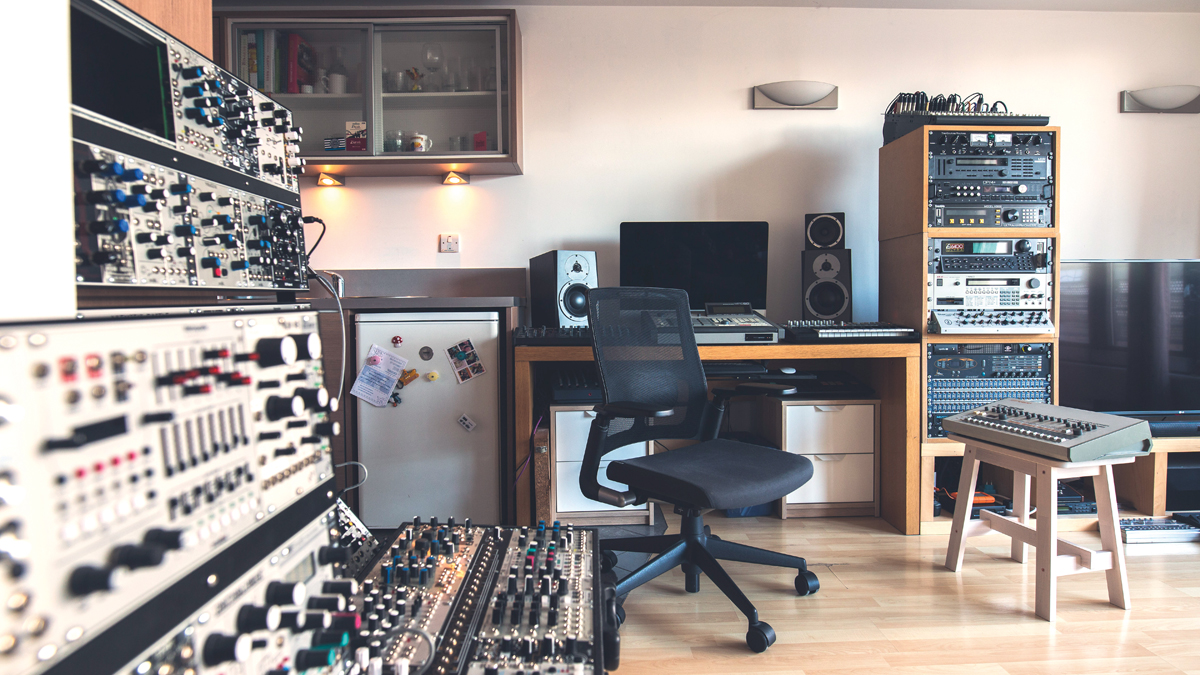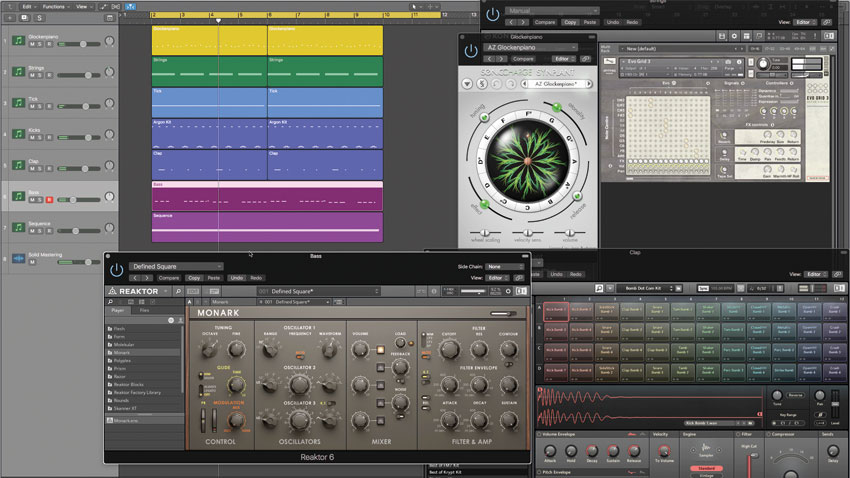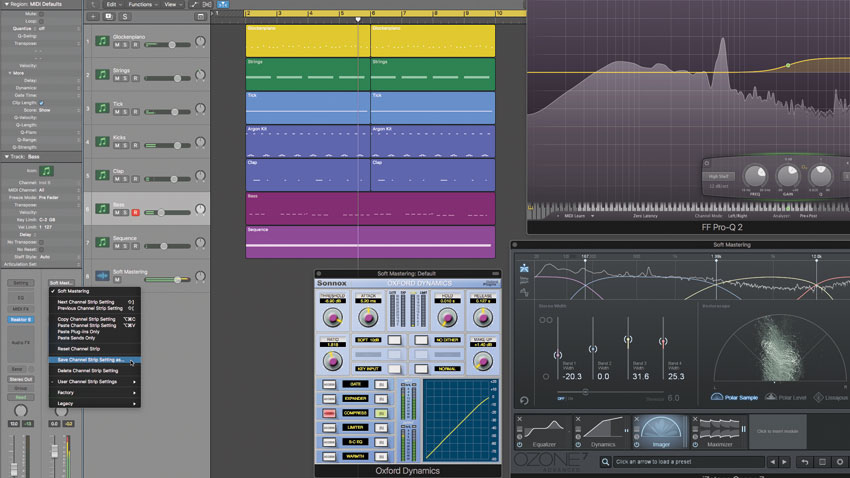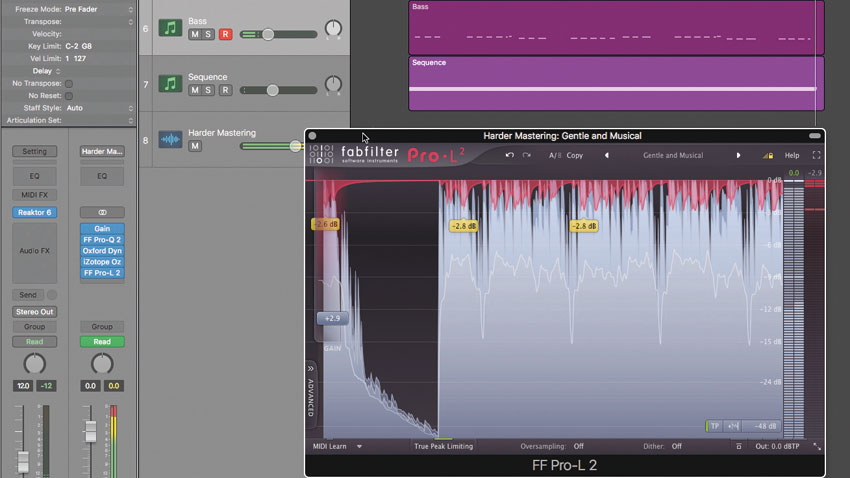8 ways to work smarter in your studio - get productive today
Fitter, stronger, happier, more productive... Streamline your workflow with our top studio hacks

Is your studio the zen-like creative environment it should be? And is your workflow optimised for smoothness, speed and inspiration? From decluttering to randomisation, our tips will help you make better music today.
1. Get prepared before the band arrives
If you’re producing a band, you’ve got the technical needs of several different musicians to think of at once, with mic choices, audio interface input counts, sound separation, monitoring, headphone feeds... the list of considerations goes on.
Getting these choices right and overseeing the creative fruits of a band is one of the most rewarding experiences any producer can have, but be as ahead of the game as possible by thoroughly thinking through a session’s requirements long before the band turn up.
2. Finish your tracks!
This might sound like an odd piece of advice in a feature about improving workflow and increasing productivity, but both of these are dependent on a confident mind-set, and not finishing tracks can be a kick in the teeth for your self-confidence.
3. Create a 21st century patchbay
It’s rumoured that a dance act of the late '90s started their tracks by randomly re-patching their mixing desk. They might end up with a synth line channelled through the EQ, compressor, distortion and reverb chain of the bassline, or the drums might get sent through the vocal channel.
Sometimes a curious magic would throw up a random idea they’d use. Who cares if it’s an urban myth - it’s a great idea. Drag your sounds from their ‘intended’ tracks in your DAW to another and see if anything piques your interest. It might set you on a new creative road.
4. Tidy up!
Don't abandon coffee cups, water glasses and plates in your studio. At the end of every session, get them out of there, wash them up and put them away.
Want all the hottest music and gear news, reviews, deals, features and more, direct to your inbox? Sign up here.
Nothing looks and smells worse than yesterday’s food and drink on your desk the following morning.
5. Introduce some random
It’s easy for our ears to be drawn to the same kinds of sounds every time we work. One way to get past this is to try plugins that allow you to experiment with randomness. NI’s Absynth 5 is a good example, as is Synplant.
By choosing how far from the currently loaded sound you want to ‘travel’, you can either reinvent the sonic wheel, or experiment with subtle variants. Omnisphere 2 has an interesting approach to this too; choose a sound and then ‘lock’ particular parts of the engine before selecting parameters from a second sound, producing weird hybrid tones in the process.
6. Output channel solutions
Creating output channel strips that inflate and ‘master’ your work in progress is a great time-saving idea, provided you don’t end up with a one-size-fits-all approach. Through the following steps, we’ve created two chains for recall whenever required: one for ‘moderate’ inflation and one for more aggressive requirements.

Step 1: We’ve got a track that's beginning to take shape at the programming stage and we want to be able to hear how it might sound when passed through a mastering output chain. Here’s how the track sounds without any processing.

Step 2: We build a ‘mild’ output solution using a channel gain plugin, EQ via FabFilter Pro-Q 2, and dynamics control via Oxford Dynamics. We add iZotope’s Ozone 7, further EQ, dynamics, stereo imaging and soft maximising, for a gentle output channel (‘Soft Mastering’).

Step 3: This gives a nice lift while we continue to work without feeling like we’re slamming the mix so hard there’s room for little else. When we want to push the output chain harder, we add FabFilter Pro-L 2 and tweak settings in the existing chain (saved as ‘Harder Mastering’).
7. Box fresh
Buy a box for the bits and pieces that always go missing, such as headphone adaptors, USB leads, rack screws, batteries and mic clips. Put them all in one place, then put that box somewhere sensible.
8. Pick OS upgrade times wisely
Updating operating systems is a necessary part of owning a computer but be careful about choosing the right time to do it. If you’re in the middle of a project and a new update turns up, you can be completely hamstrung by installing it only to discover that the third-party developers whose plugins you rely on haven’t had a chance to optimise them for the new OS yet. Accordingly, not only is it worth waiting until the intensity of your current work schedule dies down, it’s usually a good idea to let a few weeks (or even months) go by before committing to any major OS updates.
Future Music is the number one magazine for today's producers. Packed with technique and technology we'll help you make great new music. All-access artist interviews, in-depth gear reviews, essential production tutorials and much more. Every marvellous monthly edition features reliable reviews of the latest and greatest hardware and software technology and techniques, unparalleled advice, in-depth interviews, sensational free samples and so much more to improve the experience and outcome of your music-making.
